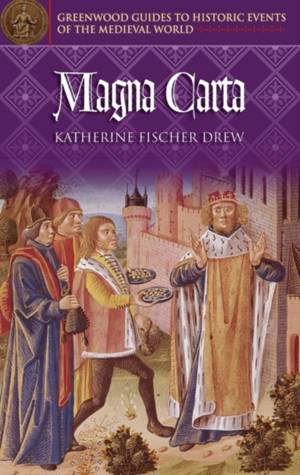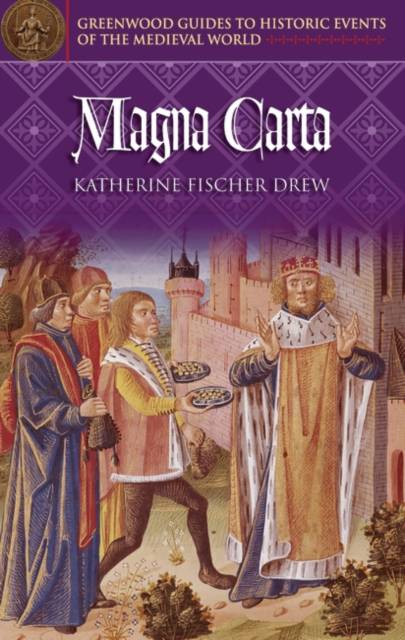
- Retrait gratuit dans votre magasin Club
- 7.000.000 titres dans notre catalogue
- Payer en toute sécurité
- Toujours un magasin près de chez vous
- Retrait gratuit dans votre magasin Club
- 7.000.0000 titres dans notre catalogue
- Payer en toute sécurité
- Toujours un magasin près de chez vous
Description
With the advent of Magna Carta, royal power fell under written secular law and individual liberties were codified. Representative government, common law, and key trial rights such as habeas corpus grew out of these landmark documents. Magna Carta Magna Carta is the name later given to a document signed by king John of England under pressure from the barons and other notables of England in the summer of 1215 at a meadow called Runnymede, which is on the river Thames between London and Windsor. This remarkable document resulted from an aristocratic rebellion against the crown, sparked by king John's abusive use of his customary rights as lord of England. Though the rebellion began with the barons - who benefited most from John's concessions - success was ensured by John's alienation of the church and the rising merchant class, symbolized by the City of London. But remarkable as the original agreement was, it acquired its elevated position in the legal and constitutional history of England as much from what men thought it said as from what its provisions actually contained.
Magna Carta was actually issued several times during the 12th century, often with substantial revisions. Entangled in dynastic wars at home and in France, and carrying on Crusades in the Holy Land, English kings required tremendous amounts of money to finance their armies and pay for the increasingly centralized government. Unsurprisingly, sentiments of rebellion grew stronger and stronger among the landed barons and wealthy merchants as royal demands for their money grew heavier and heavier. Thematically oriented chapters help readers differentiate fact from fiction regarding this pivotal charter in the history of human freedom. Furthermore, the pivotal roles played by the Church, of the landed barons, and of the emerging merchants in England's towns in extracting the concessions from the crown are discussed in broad, yet detailed, strokes. Chapters on Magna Carta's profound influence on common law and the development of representative government follow. Fifteen biographies of key figures like Henry II, Pope Innocent III, William the Conqueror and Eleanor of Aquitaine enhance the narrative chapters, as do the extensive extracts of the Coronation Oath of Henry I, Magna Cartas of 1215 and 1225, the Charter of the Forest of 1225, and the final Confirmation of the Charters from 1297. Glossary, annotated timeline, maps, bibliography, and index are included.Spécifications
Parties prenantes
- Auteur(s) :
- Editeur:
Contenu
- Nombre de pages :
- 256
- Langue:
- Anglais
- Collection :
Caractéristiques
- EAN:
- 9780313325908
- Date de parution :
- 01-09-04
- Format:
- Livre relié
- Format numérique:
- Genaaid
- Dimensions :
- 161 mm x 243 mm
- Poids :
- 521 g

Les avis
Nous publions uniquement les avis qui respectent les conditions requises. Consultez nos conditions pour les avis.






